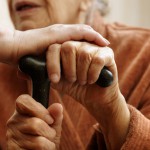When a loved one experiences a stroke, the path to recovery often involves choosing the right retirement residence with proper rehabilitation services. In Ontario, many retirement homes offer varying levels of post-stroke care, but not all are equally equipped. Asking the right questions is essential to ensure that your loved one receives the specialized therapy and support they need to regain independence and quality of life.
 Why Stroke Rehabilitation in a Retirement Home Matters
Why Stroke Rehabilitation in a Retirement Home MattersA stroke can result in long-term physical, cognitive, and emotional challenges. Recovery often requires a combination of:
Ontario retirement residences that offer these services can provide a more comfortable and consistent recovery environment than hospital or outpatient settings.
Ask questions regarding retirement homes to our experts
Below is a list of key questions you should ask when touring or inquiring about retirement residences that claim to offer stroke rehabilitation services:
| Question | Why It’s Important | What to Listen For |
|---|---|---|
| What stroke rehabilitation services do you offer on-site? | Understand the scope of available therapies | Physiotherapy, speech therapy, occupational therapy provided in-house |
| Are your therapists certified and experienced with post-stroke recovery? | Ensure qualified care | Registered therapists with geriatric and neurological experience |
| How often are therapy sessions offered? | Assess consistency of care | Daily or multiple sessions per week, not occasional or ad hoc |
| Is there a personalized recovery plan for each resident? | Customized plans improve outcomes | Individualized care plans reviewed regularly with family involvement |
| What role does your staff play in supporting stroke recovery? | Rehabilitation requires collaboration | PSWs and nurses trained in mobility assistance and post-stroke care |
| How do you coordinate care with external rehab specialists or hospitals? | Continuity is essential after hospital discharge | Partnerships with local stroke clinics or hospitals for seamless care |
| Do you provide cognitive or psychological support post-stroke? | Mental health is often overlooked but critical | Access to counsellors, memory training, or emotional support services |
When assessing a facility, also consider:
What should I look for in a stroke rehabilitation program at a retirement home?
Look for customized therapy plans, certified therapists, daily or regular sessions, cognitive support, and a team experienced in senior stroke recovery.
Are stroke rehab services in Ontario retirement homes covered by OHIP?
Basic health services may be covered, but many therapy sessions and personal care services in retirement residences are paid privately or through insurance.
How soon after a stroke can a senior move into a retirement residence?
Once medically stable and discharged from the hospital, a senior can transition to a retirement home for ongoing rehabilitation and support.
Do all retirement homes in Ontario offer stroke rehabilitation?
No. Some only offer basic care. It’s important to ask detailed questions and confirm services during your visit.
How do I know if a retirement home has experience with stroke recovery?
Ask for examples of past recovery cases, qualifications of therapy staff, and how they tailor care for stroke survivors.
Can therapy plans be adjusted over time?
Yes. A good retirement home will review and revise care plans regularly based on progress, setbacks, or new medical recommendations.
What happens if the resident’s condition worsens?
The residence should have protocols to transfer the resident to a hospital or long-term care facility, and coordinate any changes in treatment plans.
Choosing the right retirement residence for a stroke survivor in Ontario requires more than just a comfortable environment—it requires thorough research and strategic questions to ensure the facility is equipped for rehabilitation and long-term support. By asking the right questions, families can confidently select a residence that fosters recovery, independence, and peace of mind.
Don't hesitate to contact us at 343 309 5289 or online. We can help you choose the right establishment for you and assist you in your search.

Find a suitable senior residence